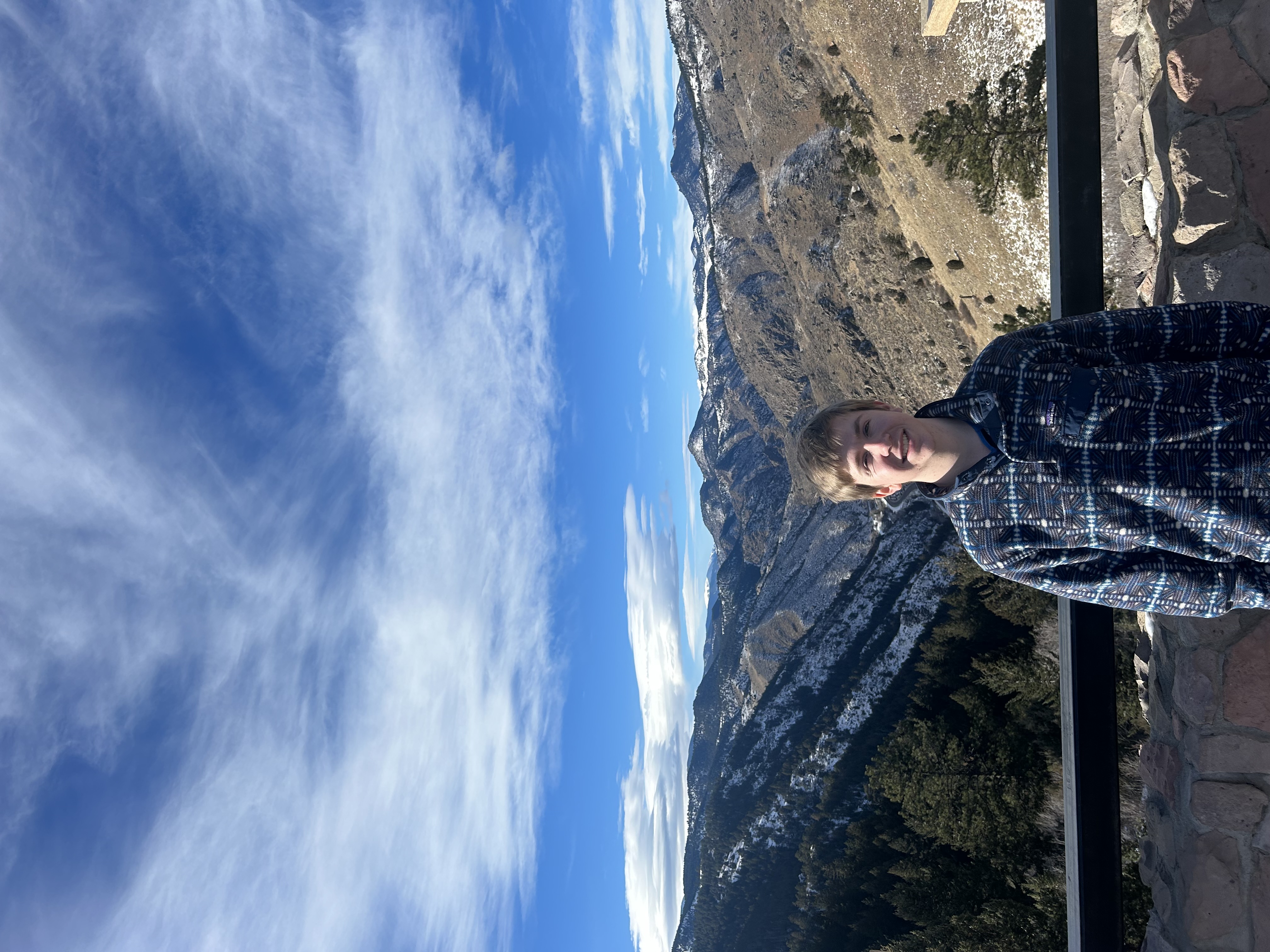Zach Long is a rising second-year majoring in Chemistry. He is working in a lab with chemistry professor Dayne Swearer to study the distribution of gas temperatures.
Tell me about your SURG topic.
Long: I am using infrared spectroscopy to study the distribution of gas temperatures. I work with Professor Dayne Swearer. He is in both chemistry and chemical and biological engineering. He studies catalysis, specifically light-induced catalysis with nanoparticles. A lot of that research relies on the energy transfer between a light source and molecules that participate in the actual reaction. For my project, I am using gold nanoparticles and a green laser to study how the energy from the laser can transfer from the laser to the nanoparticles and then from the nanoparticles to the gas molecules. That utilizes the idea of gas temperatures and infrared spectroscopy because perpendicular to the laser that’s shot down at nanoparticles is infrared light shot across. The change in those wavelengths are used to look at the temperatures of the gas molecules.
What got you into this research?
Long: My college seminar class I took first quarter had a scientific research focus. I got to read one of Professor Swearer’s papers and interview him about his research. From there, I got really interested in the idea of nanoparticles and how they can be used for chemistry. I’ve worked with him the past two quarters in more of a research setting. I’ve been attending the group meetings to learn more about the topic. I found it to be really interesting and I enjoy the applications. It has a lot of applications for climate change and things that I really care about.
What are those applications?
Long: A lot of the focus of this research is on the fact that the chemical sector globally uses more than a quarter of the world’s energy and trying to decarbonize that sector through the use of more sustainable methods like light-induced catalysis and nanoparticles. Both of those are ways that we hope to decarbonize the chemical industry and maybe even more as we go into the future.
What benefits are you getting from this research?
Long: The other people in the lab and especially the other undergrads that I’ve been working with, some of them are a bit older. From a mentorship perspective, it’s nice. Getting to talk to these people who have similar interests and who have had to navigate being away from home for the summer is something that I’m really grateful for. In addition to that, having the opportunity to spend a summer in Chicago funded by SURG is a really great opportunity. I’m looking forward to taking advantage of the summertime in Chicago.
Meet the other SURG Recipients!
